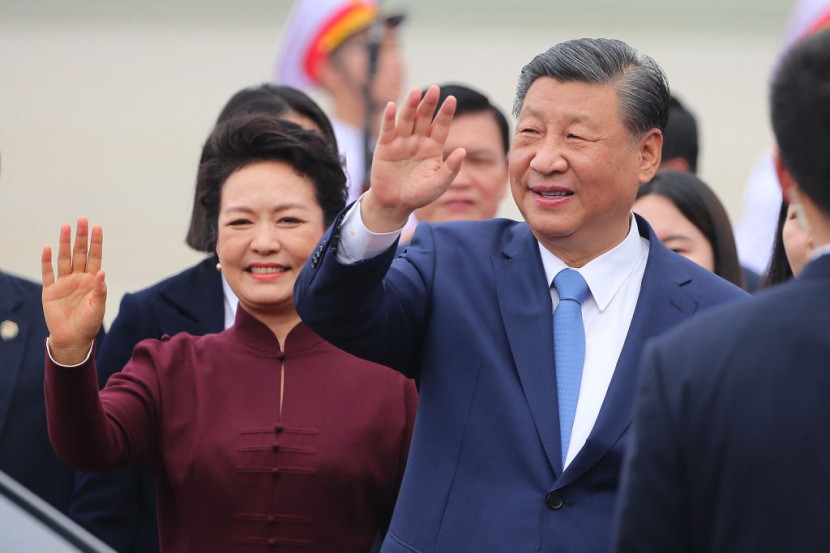Xi Jinping's anticipated state visit to Vietnam brings into focus the intricate dance of diplomatic maneuvers and strategic considerations.
As both leaders, Xi and Vietnamese President Nguyen Phu Trong, exchange compliments on the historic friendship between their nations, the visit underscores a subtle competition for Vietnam's allegiance between China and the United States, as per The Time.
Vietnam's Diplomatic Balancing Act

Vietnam is anticipated to affiliate itself with Xi Jinping's "Community of Common Destiny" throughout the visit; this action is regarded as a challenge to the prevailing US-led global order. This is a reaction to the unanticipated designation of the United States as a "Comprehensive Strategic Partner" during the recent state visit of President Joe Biden to Hanoi, which effectively equated the two countries' influence in Vietnam's global alliances.
The visit also involves economic overtures, with China offering advanced railway technology to upgrade Vietnam's transport infrastructure. However, the agenda remains conspicuously silent on longstanding territorial disputes, historical grievances, and the bitter memories of conflict in the 1970s and 80s.
Despite diplomatic niceties, public sentiment in Vietnam, a country renowned for its strong anti-Chinese stance, continues to be cautious. In the world of online discussions, sensitive topics like territorial disputes and historical grievances are often brought up. However, it is worth noting that these particular issues are tactfully avoided in official discussions.
Vietnam's strategic approach to its ties with China can be traced back to its rich historical backdrop, characterized by a strong sense of national pride, arduous battles for independence against external forces, and an enduring apprehension towards its colossal northern neighbor. Although occasional anti-Chinese protests have occurred, the Vietnamese government treads cautiously to manage public sentiment, according to BBC News.
Navigating China Ties Amidst Global Alliances
Despite this, the economic relationship between China and Vietnam holds great importance, as China stands as Vietnam's primary trading partner and the leading foreign direct investor. China's Belt-and-Road initiative, which seeks to expand economic influence, has garnered a range of responses in Vietnam, highlighting the presence of concerns regarding economic dependence.
Vietnam's strategic outlook, characterized by "bamboo diplomacy," aims to befriend all nations while avoiding alliances and conflicts. Yet, the upgrade in US-Vietnam relations this year signals a hedging strategy against Chinese influence, particularly in light of ongoing tensions in the South China Sea.
The increasing economic influence of China in Vietnam, in conjunction with the ideological connections that exist between the leaders of both countries, clarifies the intricate dynamics in operation. Nevertheless, despite the fact that Vietnam maintains a strategic alliance with China, its leaders remain on guard in anticipation of perceived assertiveness that may impede relations.
During his visit to Vietnam, President Xi Jinping carefully navigated the intricate diplomatic scenery. The relationship between these Asian neighbors is influenced by factors such as economic interdependence, historical grievances, and regional power dynamics, Voice of America reported.
© 2025 HNGN, All rights reserved. Do not reproduce without permission.








